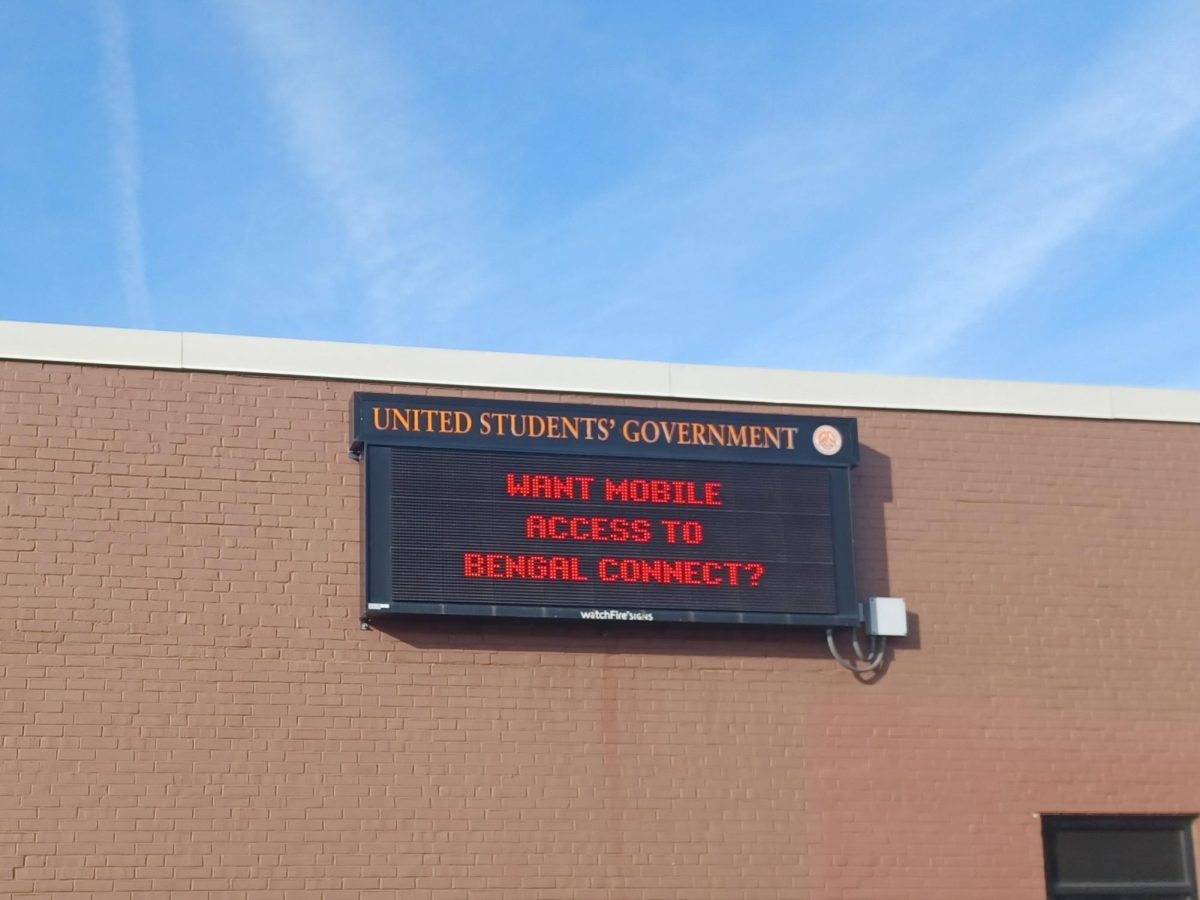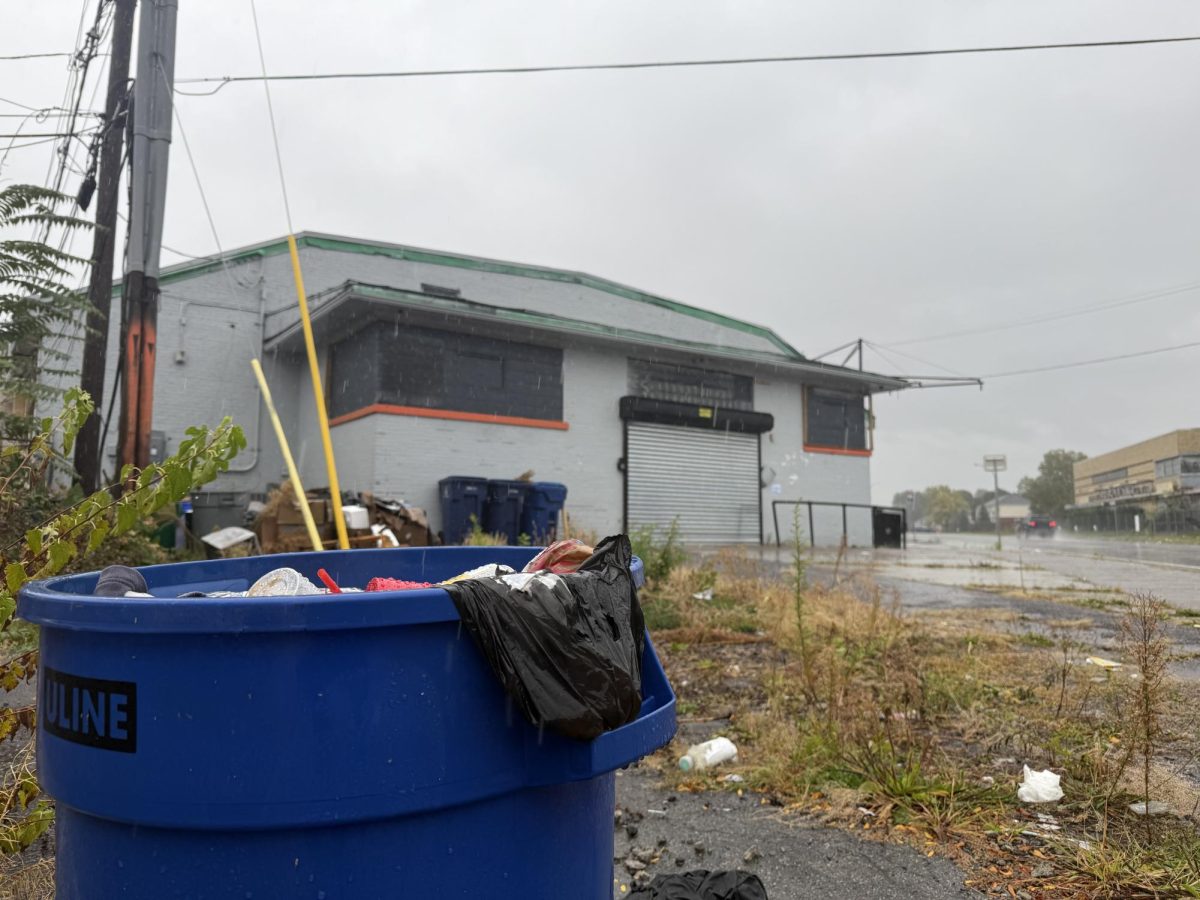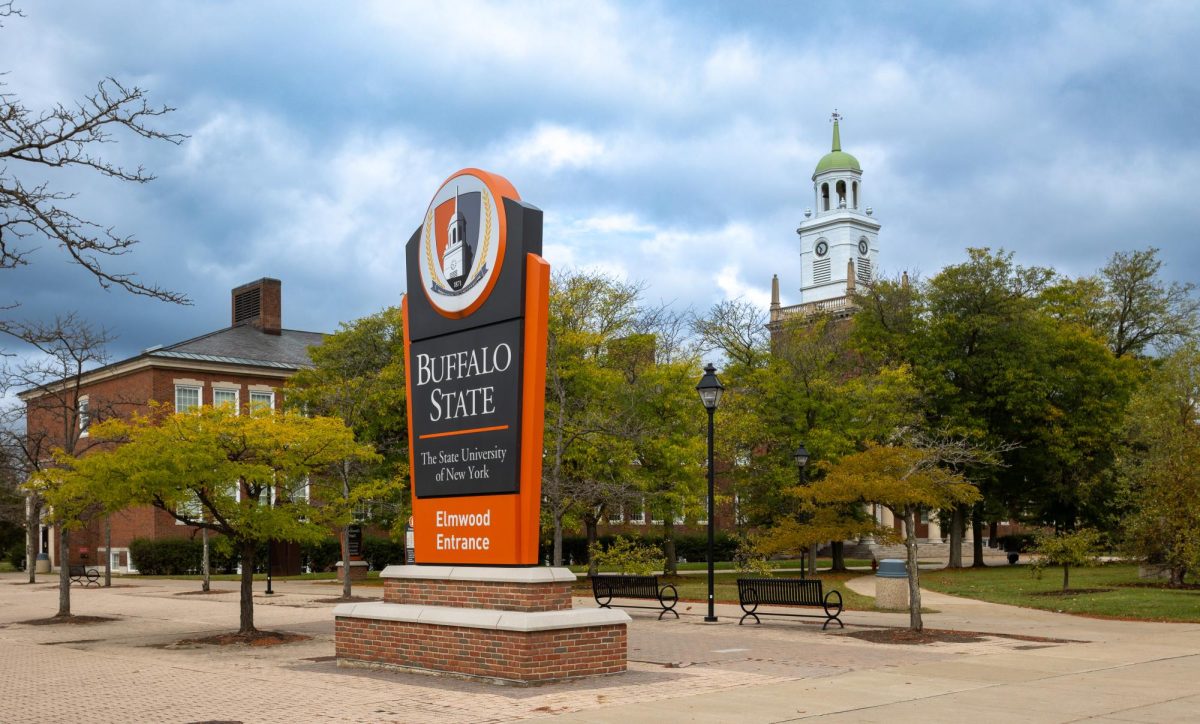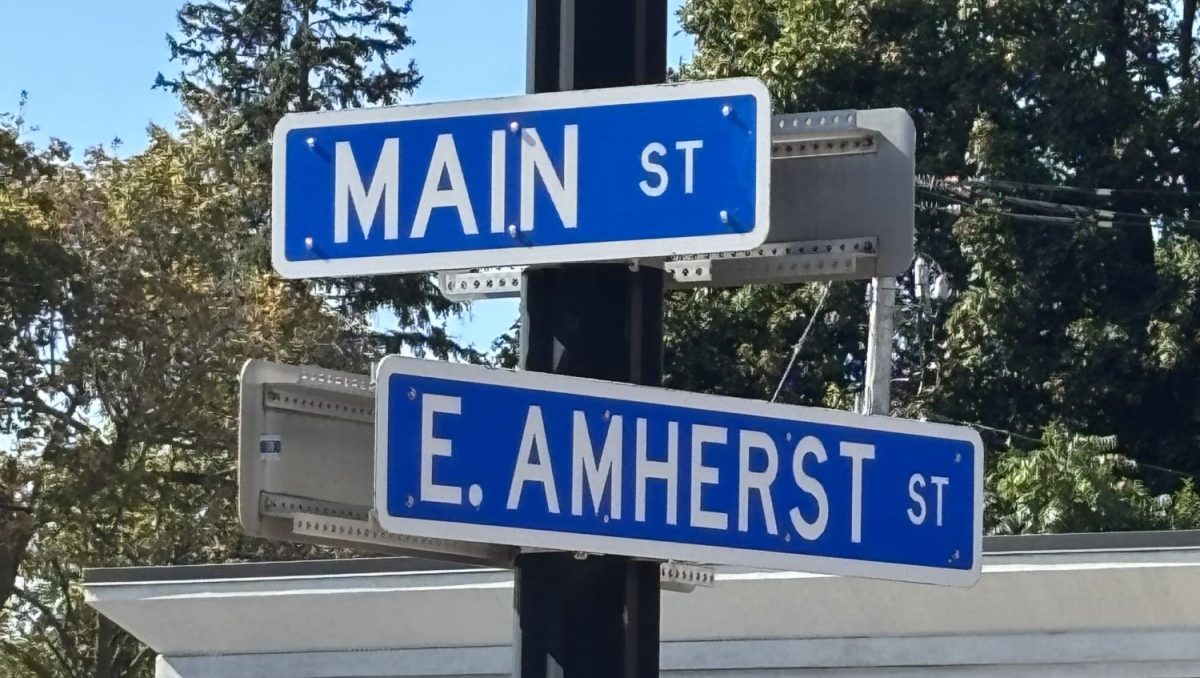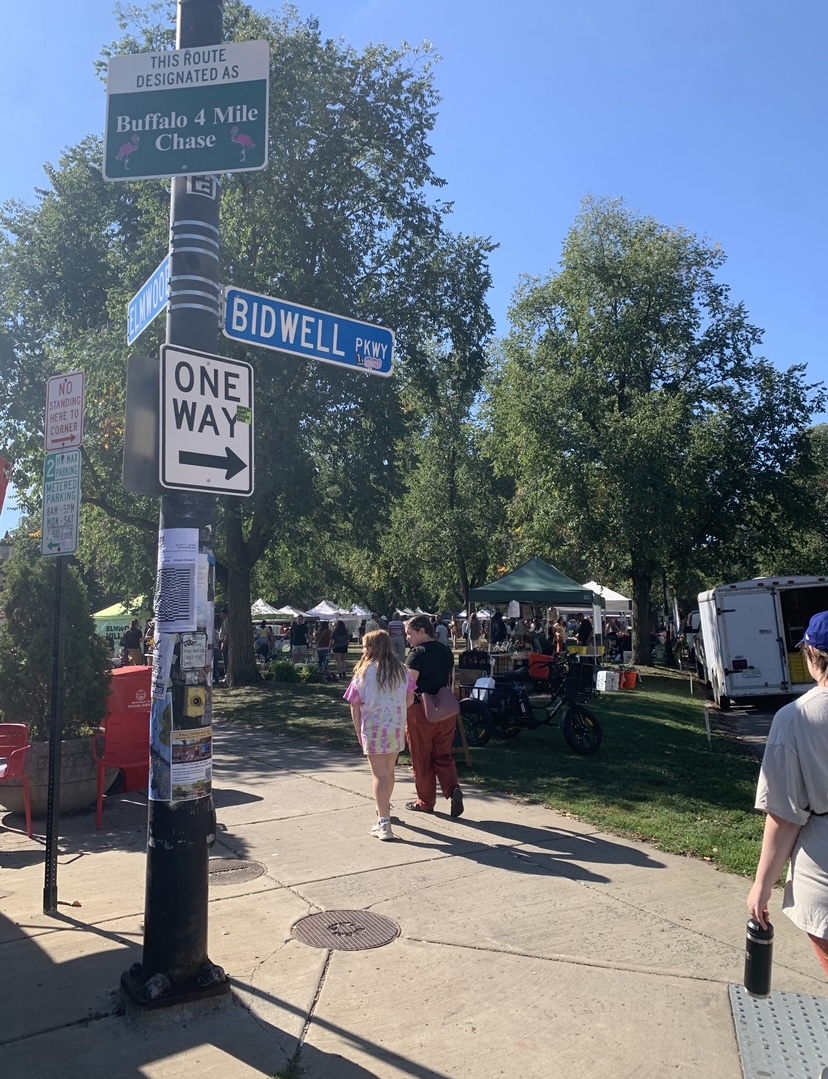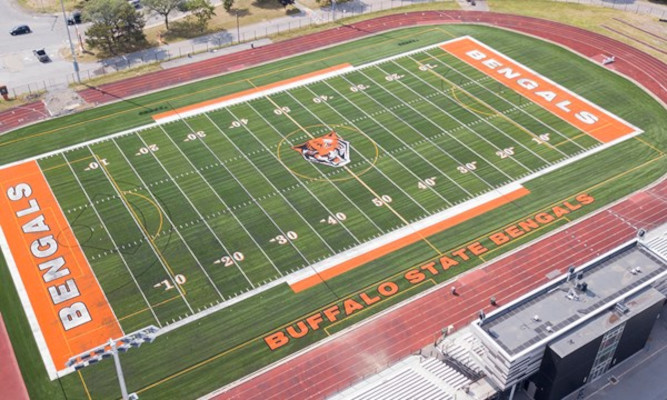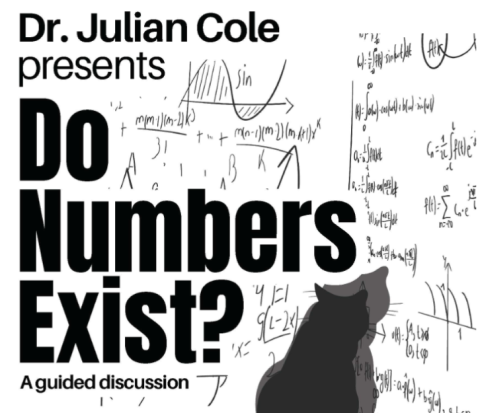United Students Government (USG) is an entity that supports its student body by organizing events and activities, advocating for students, and overseeing numerous student organizations and the utilization of the mandatory student activity fee.
While some may view USG as merely a mechanism of oversight or an entity that merely slaps sanctions on student organizations, delving into USG reveals that incredibly hardworking and caring individuals are involved in the governing body, and that the people behind USG work tirelessly to support the student experience.
Tayllor Clark, a Childhood Education major, is the USG President. Clark’s passion for student government and advocacy shines through daily. So, who is Tayllor Clark?
Clark provides insight into her roles and responsibilities as the USG President, her academic journey, and the interconnectedness of the Senate, the Executive branch, and Judicial Council.
The interview was slightly edited to increase clarity and brevity.
1) As the USG President, what are some of your daily responsibilities? How do you balance your responsibilities as the USG President and as a college student?
So, with USG, something really cool is that we’re not technically an organization through Buffalo State. We’re our own separate service group, we’re incorporated. And with that, all of us serve a role within a corporation-type atmosphere. As for myself, I’m our Chief Executive Officer (CEO). Allarae Prigan, is our vice president and Chief Operations Officer (COO). Jessica Agu is our Chief Financial Officer (CFO), and she is our treasurer.
My goal is to act as the face. For example, if a statement needs to be made or be sent out, that comes from my desk. I also keep in contact with all administration on campus.
I try to support my Executive Board (E-Board) and my legislature. We’re all students and that balance is always difficult. I remind them that they are students first. Mental health comes first, including taking time for yourself. And that also goes into how I balance my responsibilities. I put in way more hours than are required of me, but that goes into my nature; if I’m passionate about something, I’m going to dedicate a lot of time and energy to it.
I am a commuter and I also work off-campus. I try to make time for myself when I can and where I can. And, as much as I love USG: it is a job. It is also a hobby of mine. So, when I’m here, it doesn’t always feel like work. It definitely makes the work/life balance much easier.
2) What drew you to the position of USG President?
This is my second go-around with student government. I got my first degree in culinary from Niagara County Community College and that’s where I first really fell in love with student government. I got involved there to see what it was all about. I was involved in Student Council in high school and going into it, I just really wanted to know what the vibe was. I just found my niche. I found people that I loved working with, and I didn’t realize how much I loved being an advocate until I joined student government.
I am of the mindset that without students, you don’t have college, and with that: we deserve a seat at the table, we deserve to be heard and in rooms where decisions are being made. While we don’t always get what we want, as far as issues go, the fact that we have a seat and are able to make our voices heard is really what matters to me. I’ll keep fighting that battle until I walk the stage.
3) What do you find is the most challenging aspect of being the USG President?
I don’t necessarily want to call it challenging, but I just wish that there was more that I have been able to do from a presidential perspective. We have our org group meetings, and we have our corporate meetings where we meet with the members of the organization E-Boards. It’s always from a professional standpoint. One thing I would like to accomplish would be to build more of a personal, if not one-on-one relationship, with our organization presidents. I feel like that’s a network that has really gone untapped in student government. My treasurer meets with other organization treasurers, if they need to make up a training session or if they have a budgetary question. There’s not really a forum for me to meet with org presidents, so I think that’s something that I want to look into. But, with scheduling, and general day-to-day work/life responsibilities for people, it definitely gets difficult because at the end of the day, I love USG, although I have all these responsibilities. The Presidents are in the same boat: they love their orgs, and they have responsibilities, but they’re also students. I never want to overstep and get too much into somebody’s life if they have other stuff going on. But I would love to develop some more relationships with the organization presidents.
4) Intergovernmental relations entail, simply put, the relationships and dynamics among governmental branches and agencies. In terms of student government, how do you facilitate the relationship between the Senate, the Executive Branch, and Judicial Council? As the USG President, what role do you play in maintaining and strengthening the relationship and connection among the three branches?
One thing that I generally try to do, especially with my E-Board, is to focus on communication. If you can’t contact me, who are you going to contact? And I would much rather receive a text message from somebody than an e-mail; we can have a quick conversation instead of you waiting for me to get into my office hours for me to be able to sit down at my computer and write you a response back. If we could have that one-on-one interaction, I would much rather have that than something just right over a screen. I see the E board on a regular basis, whether that be during office hours, or off campus. And, within our Senate, I see all of the senators, and the Judicial Council including our Chief Justice as well as our Assistant Chief Justice during the weekly Senate meetings. And they’re open to everyone as well. Campus community members are always welcome to stop by those meetings.
We have a GroupMe within our Senate as well, and I just try as best as I can to get to know our senators because they’re the future of USG. I want them to know that these positions can be hard and look demanding, but they’re still fun. They are great to add to your resume, especially if you’re looking to go into things like business or political science.
So, I’m a people person. If I can get to know somebody more personally than just being their boss, that’s what I want to do.
5) Balancing the interests of the student body, many student organizations, the University administration, and the USG bureaucracy can be a difficult feat. As the USG President, how do you and the USG Executive Board balance the needs and interests of the multiple stakeholders on campus? Most pressingly, when the interests are conflicting, how do you remedy the situation, and find a resolution for the competing interests/needs?
One thing that I’m really proud of within USG is how diverse we are. And that can mean so many different things: what walk of life you come from, your background, what major you are, or even what you do first thing when you wake up in the morning. We’re such a diverse group of students and people, and I’m proud to say that this was my legislature.
I always try to approach things calmly. I am a professional person, and so, I’m a stickler for the rules. But I like to build relationships. When we have conflict, whether that be internal or external, we do try to remedy it and come to a solution as best as possible. I’m always telling my co-workers and everyone here within USG: regardless of what happens outside of this office, when we get in here, shake hands, make up or don’t. But, when you step in these doors, we’re fighting for one cause, and that is USG and the students here at Buffalo State. I support that mentality that we are students, and we have this voice for a reason. So, taking that into consideration when looking at conflict, conflict resolution is not always the easiest, but we work through it.
6) Could you please explain how historical decisions or path dependence within the student government have influenced the current processes and decision-making, and how do you navigate these legacies when making new decisions?
We have records going back to when USG started and officially became a group here on campus. Coming out of COVID, we sometimes say we reinvented the wheel. We’ve started new traditions, and implemented new policies and procedures. We didn’t necessarily have a starting point right out of COVID. While we could look at these files and records, we didn’t have anything to base it off because we had been in this virtual world where no one knew what an event needed to look like on campus anymore, nobody knew what a meeting should entail, and nobody knew how to make these connections with these orgs and keep up morale, keep them engaging and wanting to be active on campus. We definitely had to find some new pathways, invent some new kind of methods of communication. We had to see what works best, and not only USGS, but the campus community. Now that we’re in a sense of normalcy, we can definitely pull from what we had prior. With ever-changing enrollment numbers, that is difficult too. We’re trying to stay on trend and trying to give the students what they want. The things the folks wanted in 1976 are not necessarily what folks want in 2023. I don’t always stick to the path; I always try to find a way that is best fitting for the needs at the time.
7) Thus far, what course would you consider to be your favorite at Buffalo State University? Do explain why.
This is actually my second little path here at Buffalo State. When I started, I was in the Career and Technical Education program. My goal was to become a culinary chef educator. I took a lot of different CTE classes and within that degree program, I would definitely say strategies and methods with Joanne Ryan. Professor Ryan is amazing. I don’t necessarily know if she gets utilized enough, so definitely shout out to Professor Ryan. Within my current degree, I’m a childhood education major. So, I would say all of my hands-on methods courses. A methods course generally includes some kind of observation hours or going out into the field and working directly in the classroom for a set number of hours during the semester. The mentor teachers that I’ve met specifically in the Buffalo Public School system have been incredible and that’s been for my ELA methods and then currently for my math methods.


